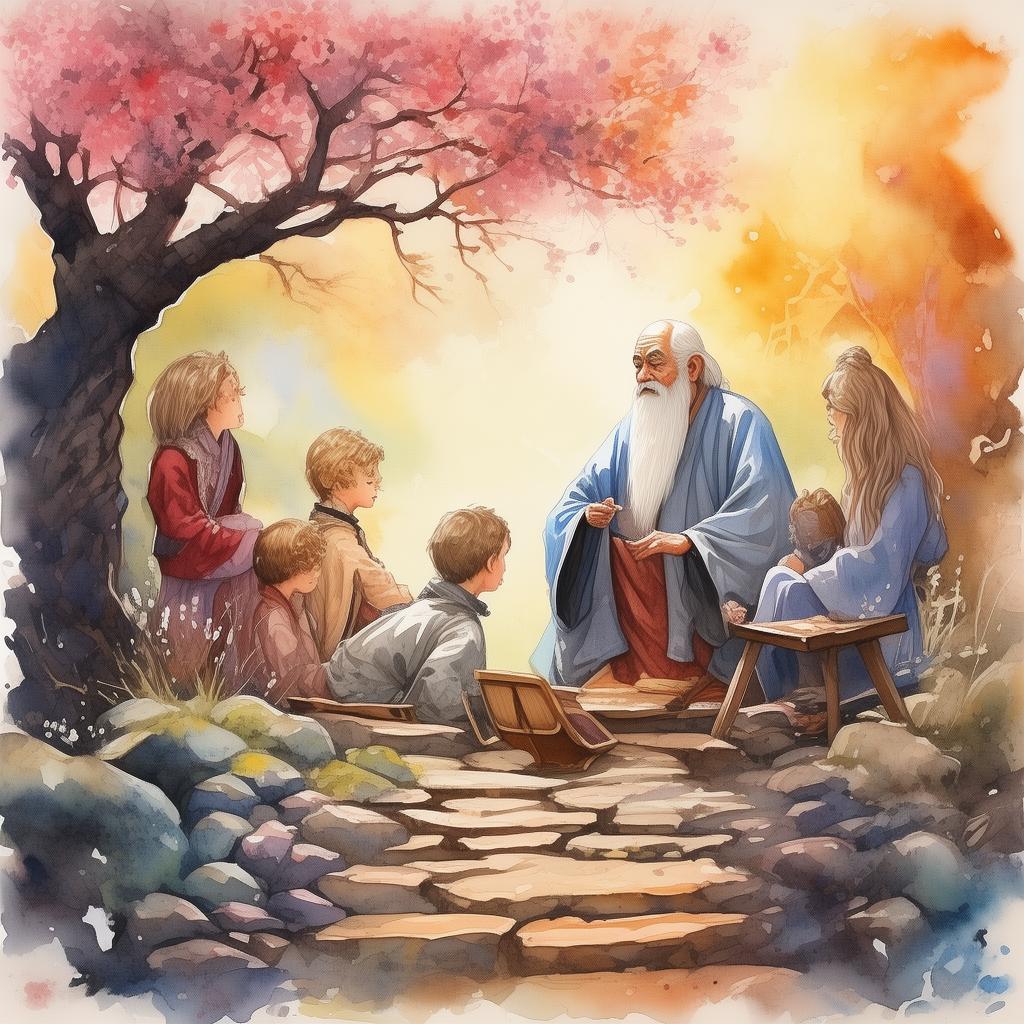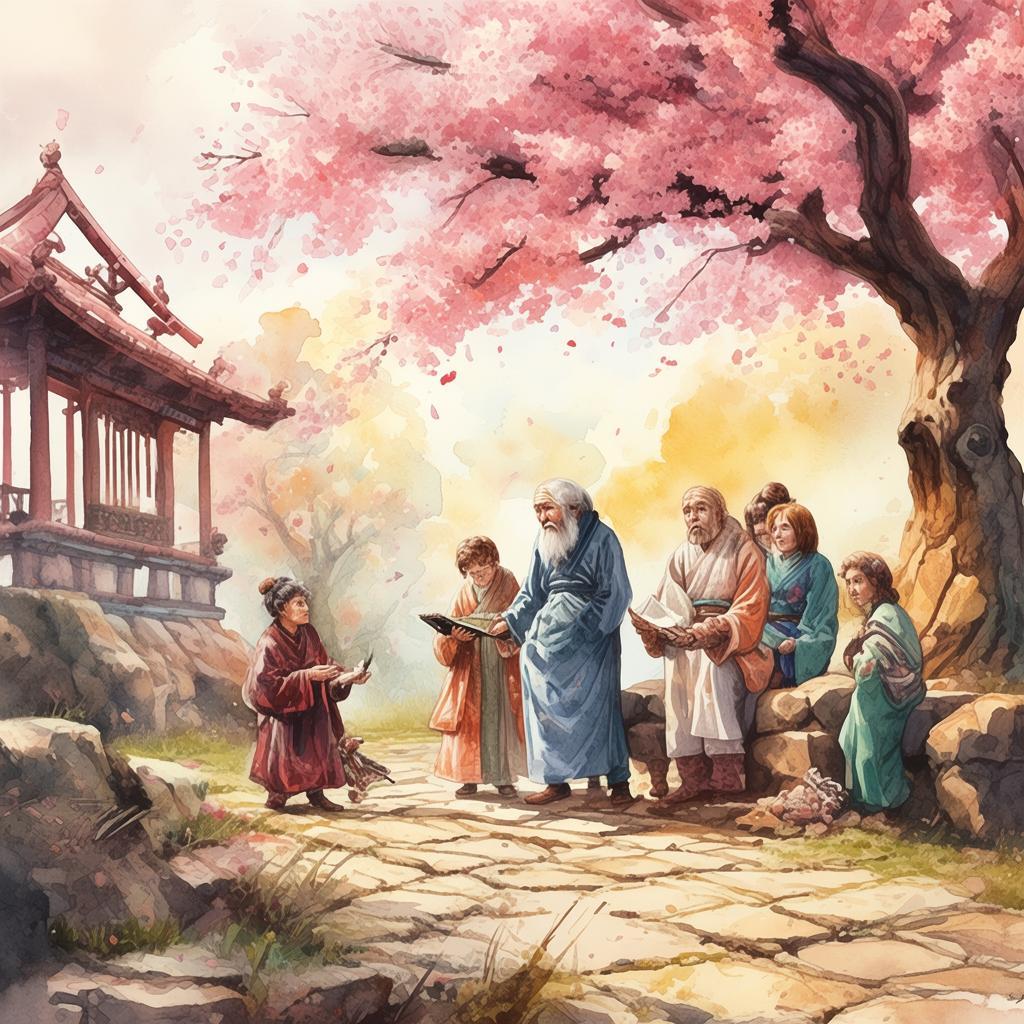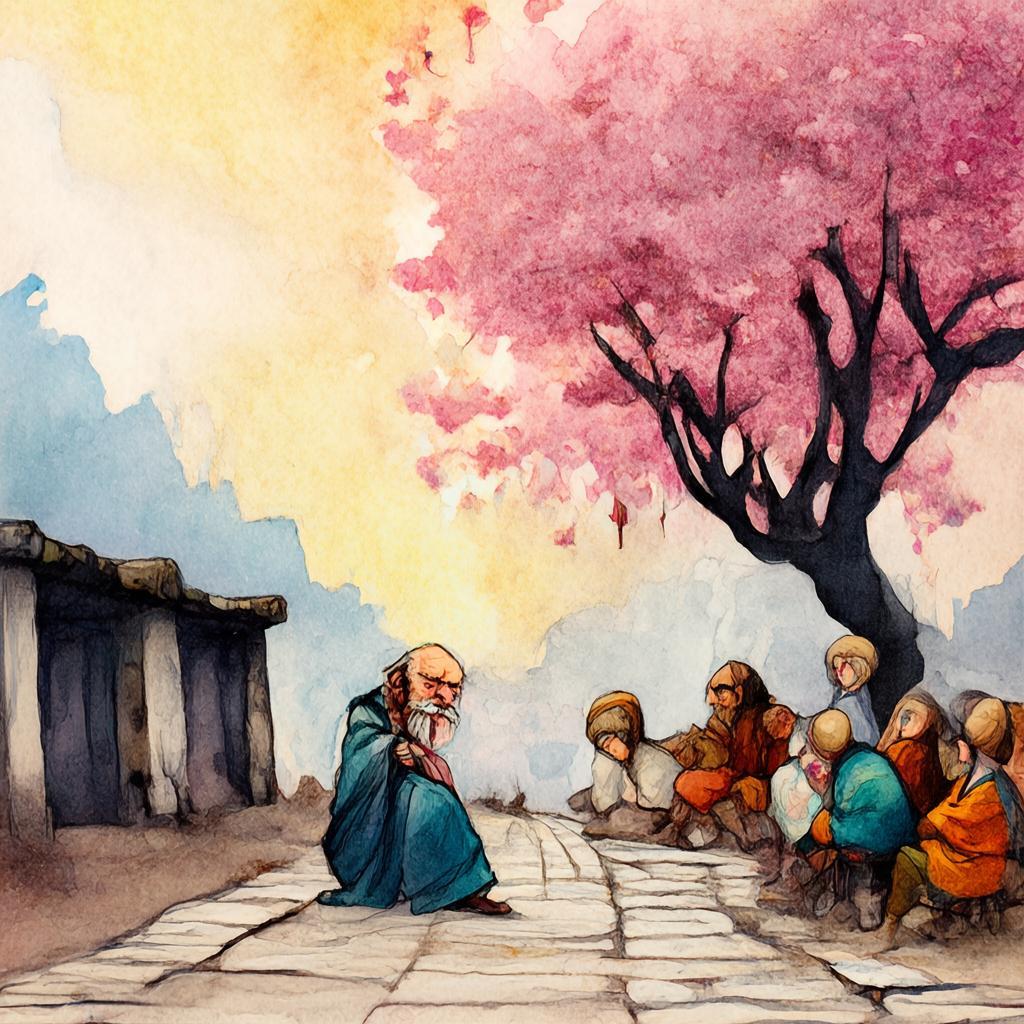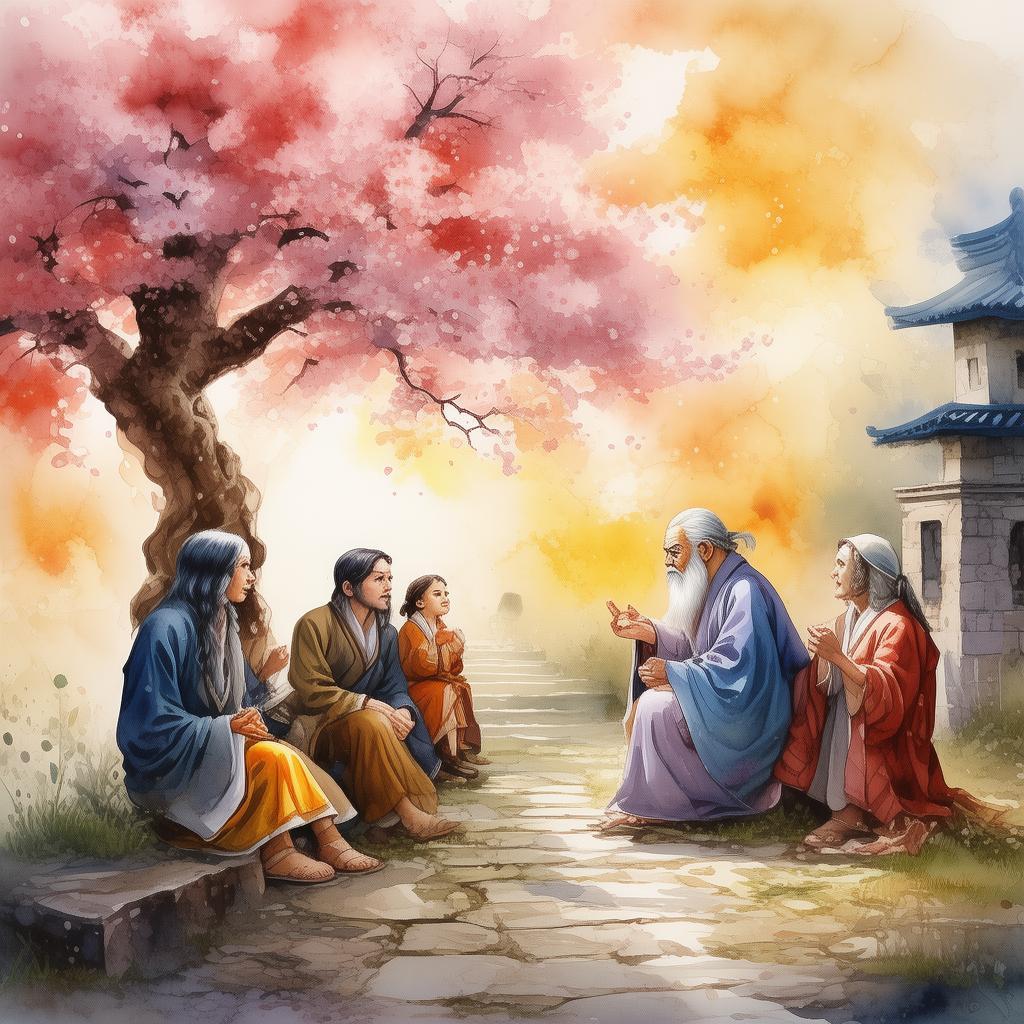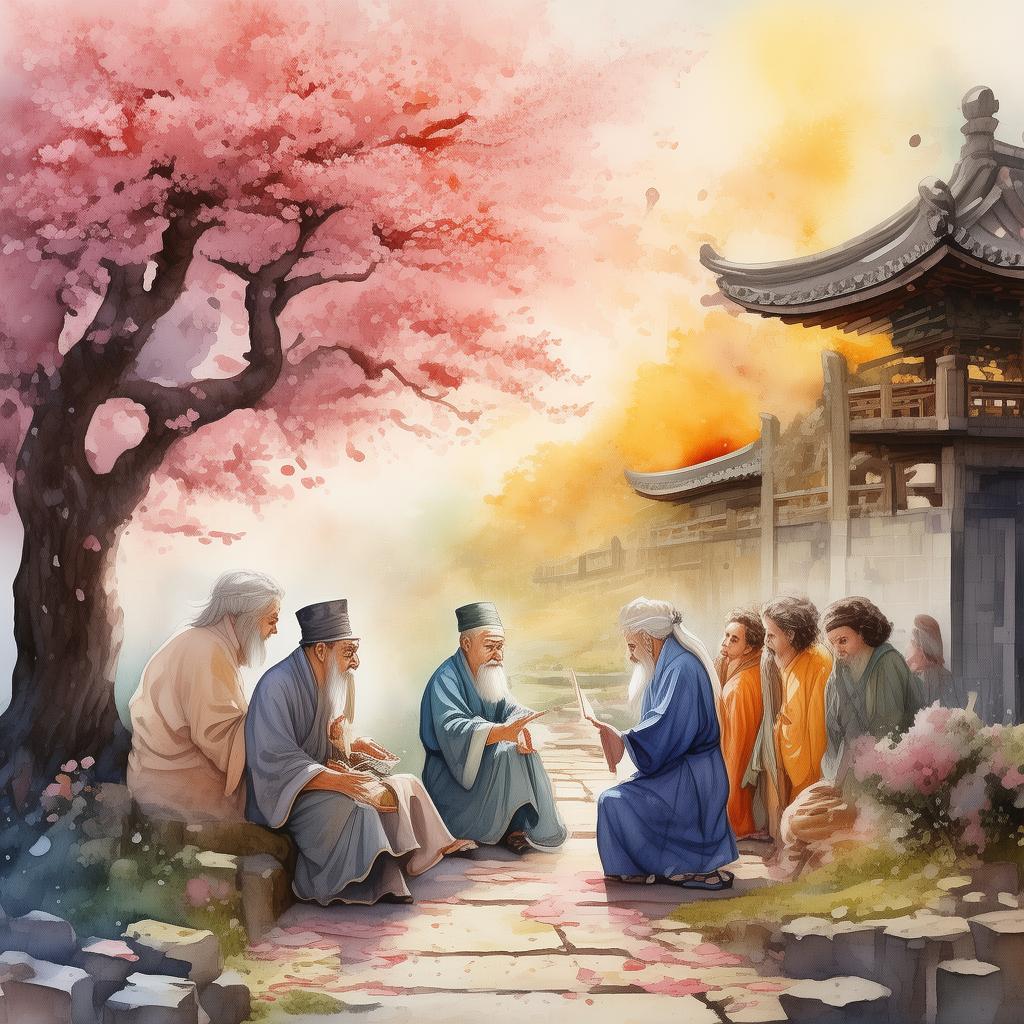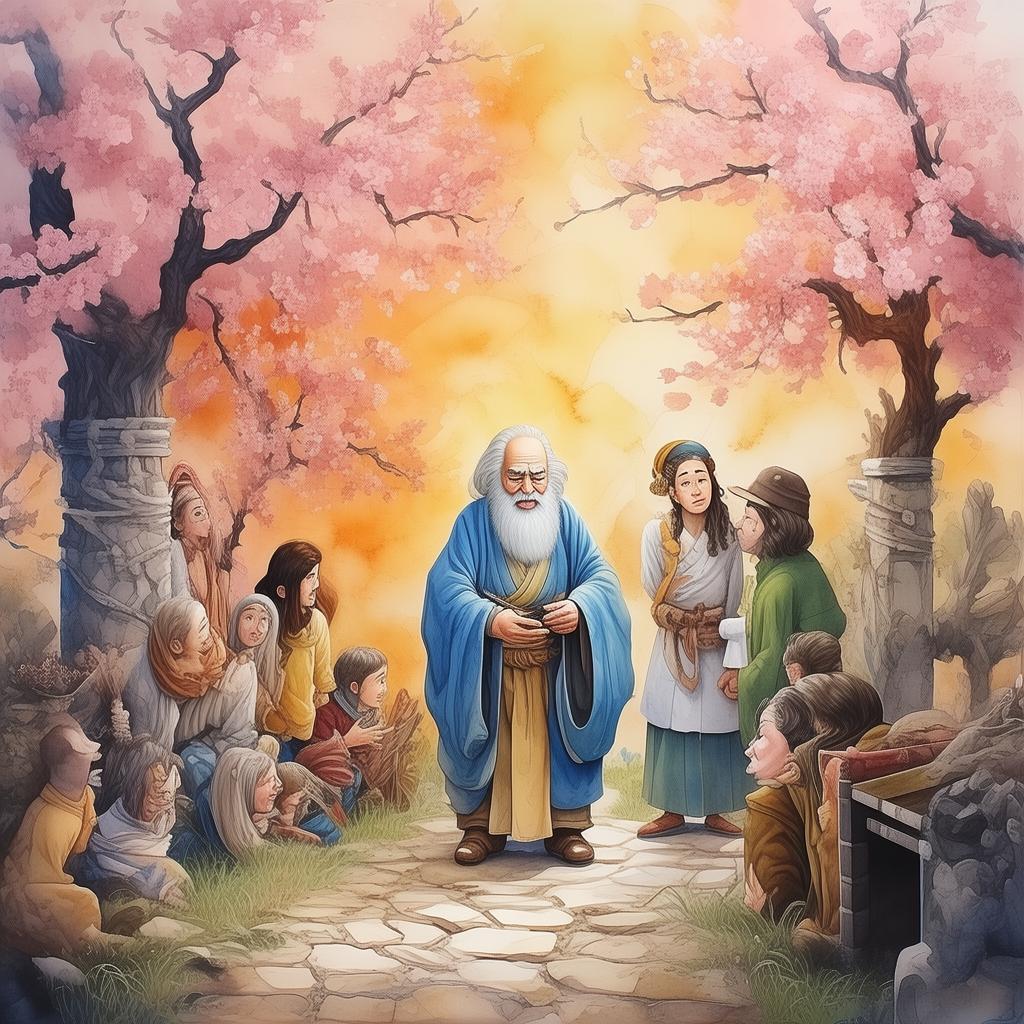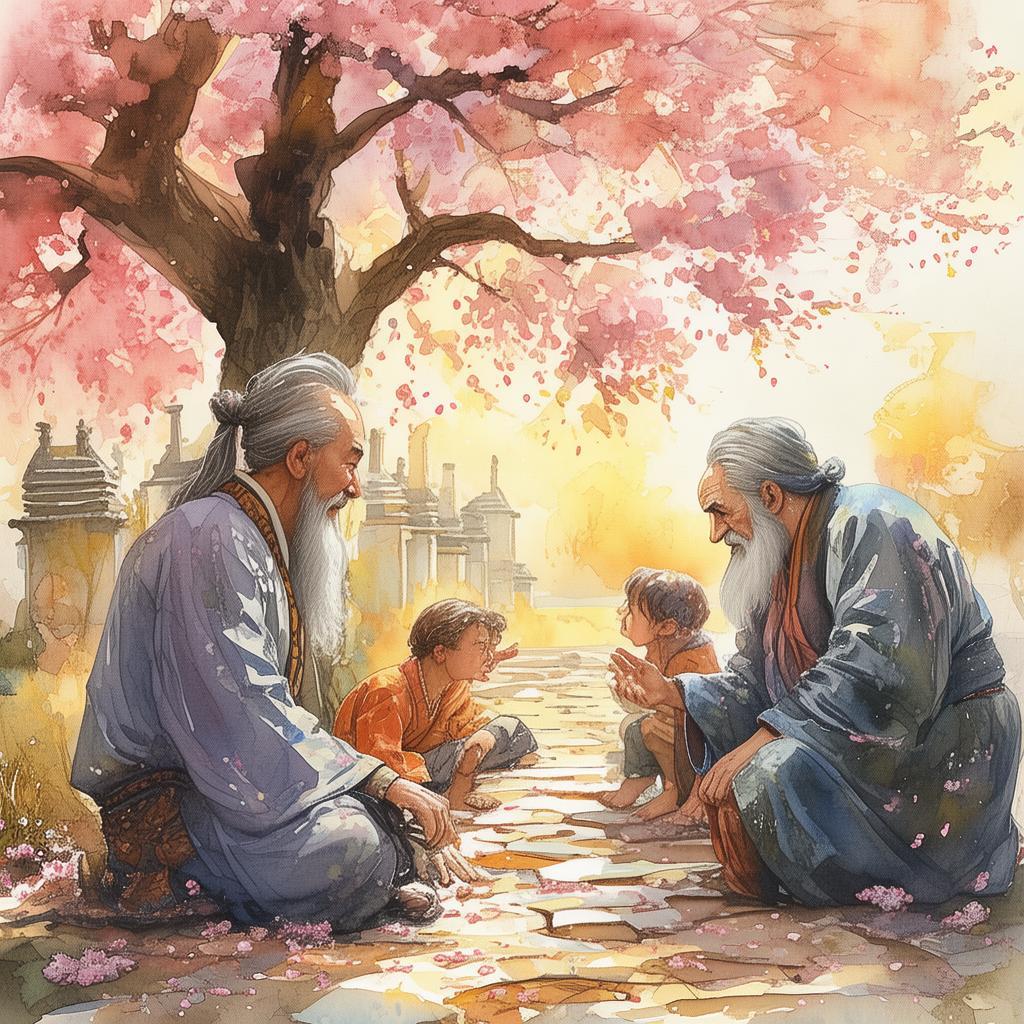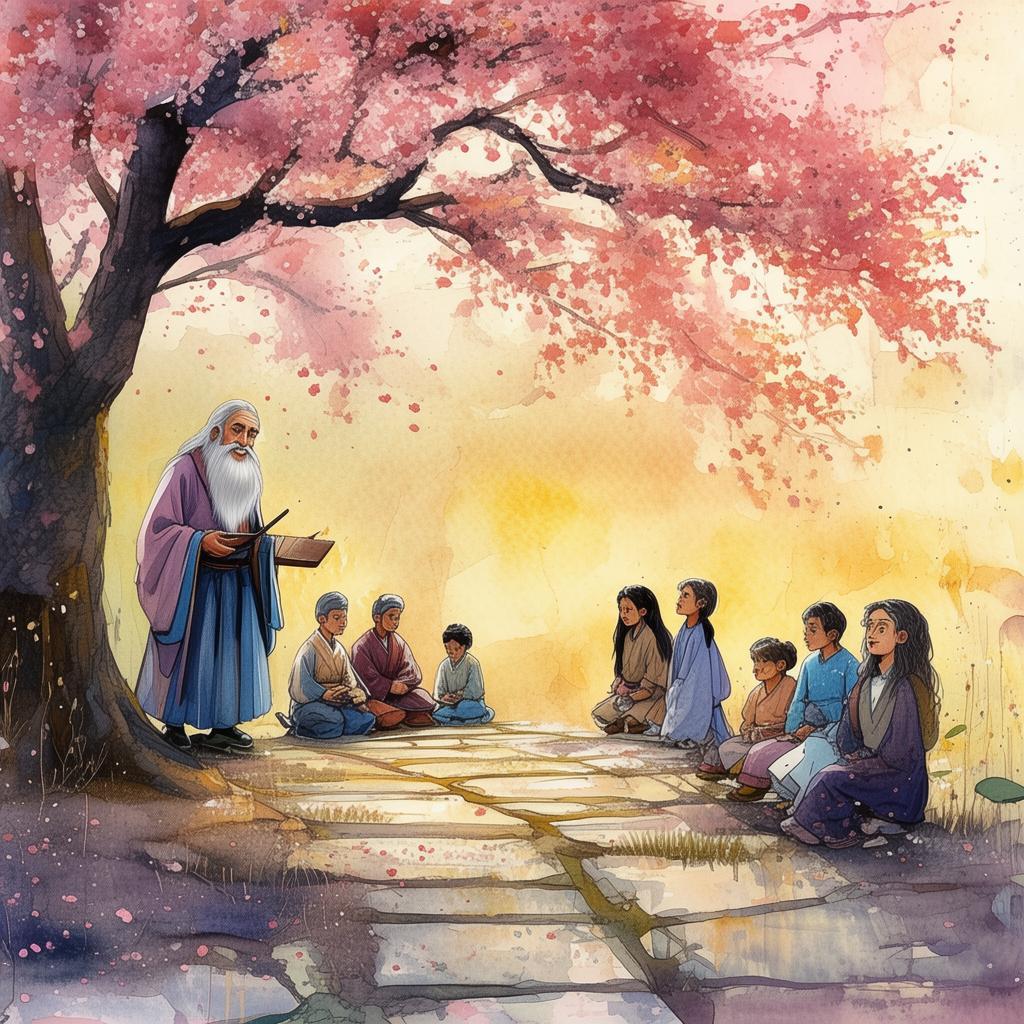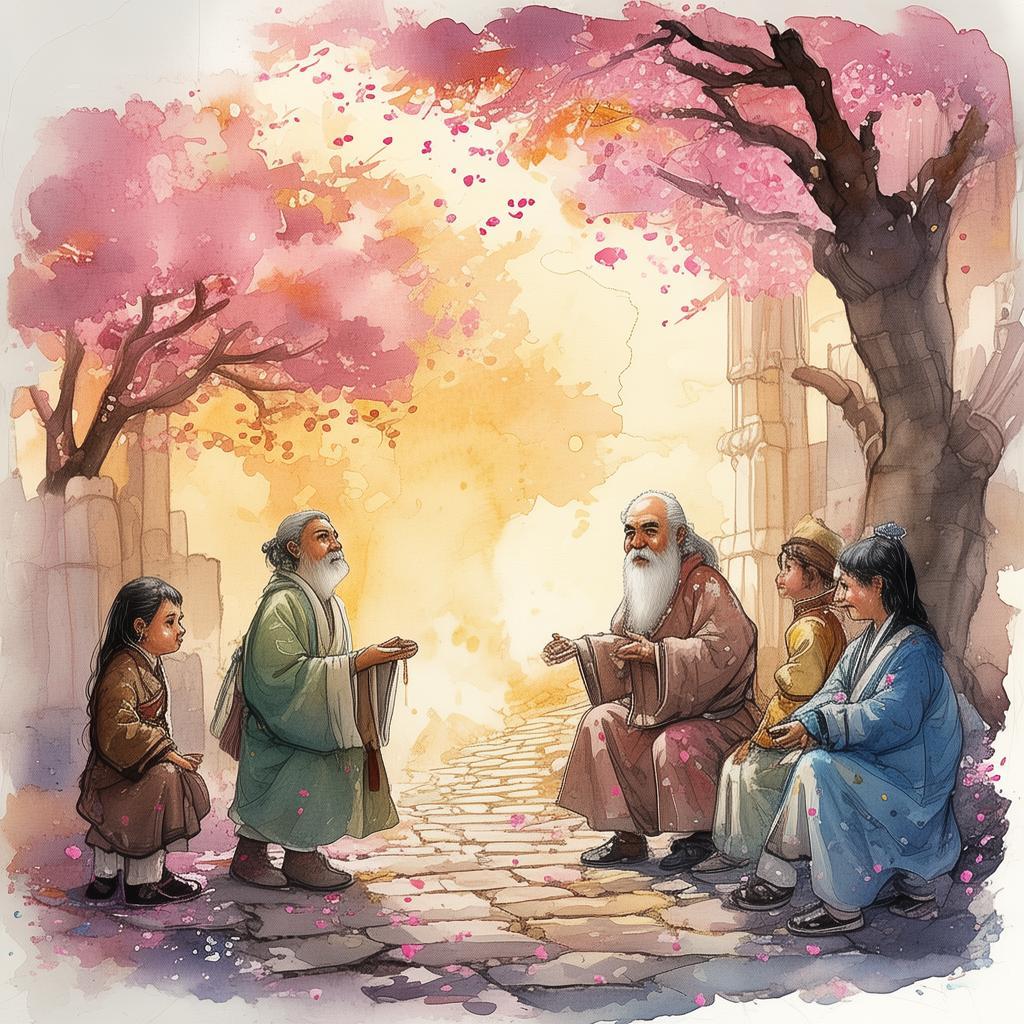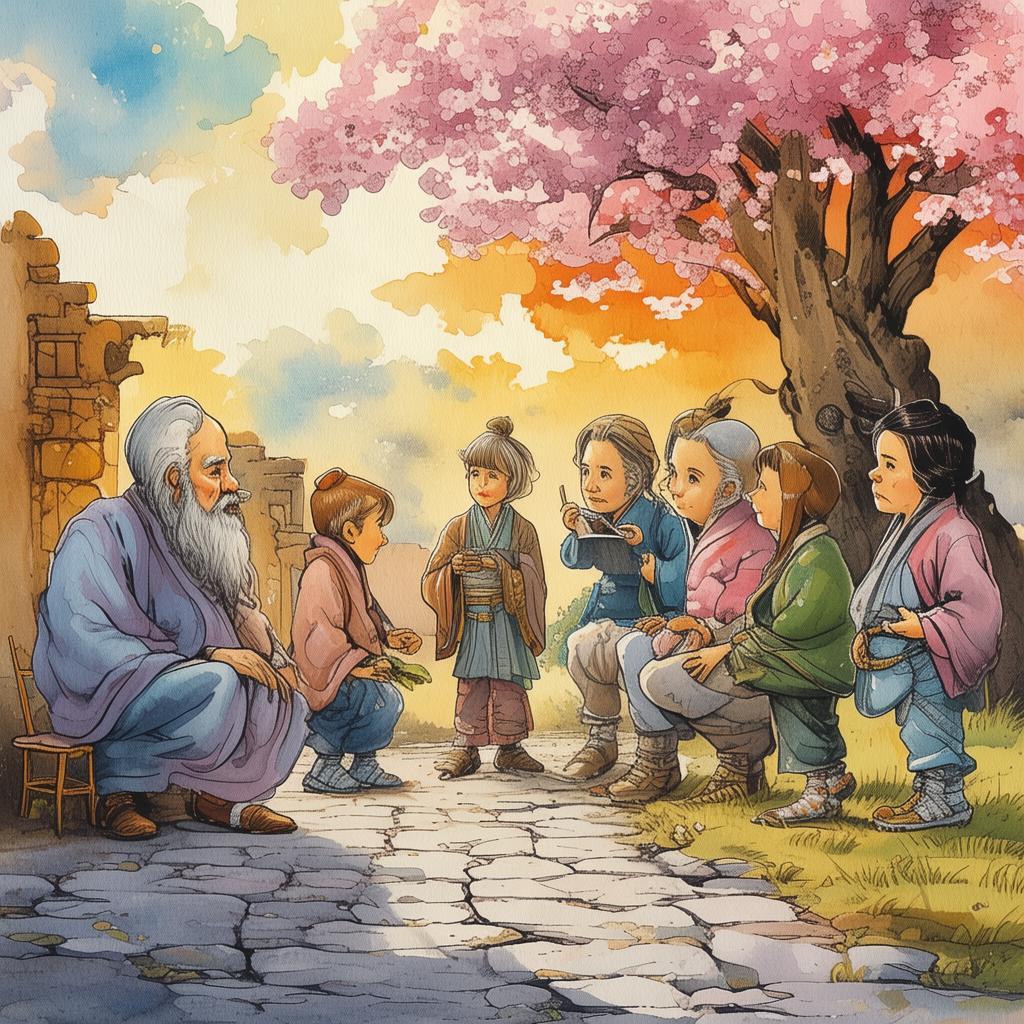Heaven's Melody: The Echo of the Celestial Choir
In the ancient land of Lingnan, there lived a young and ambitious musician named Ming. Ming had a gift that defied the ordinary, a voice so pure and resonant that it could pierce the heavens. His dream was to perform in the grandest hall, where his voice would be the centerpiece of a celestial choir, a harmony of pure words that would echo through eternity.
Ming's journey began in a humble village, where he learned the basics of music from his grandmother, an old woman with a story in every note she sang. She spoke of the Celestial Choir, a legendary group of musicians who performed in the heavens, their voices blending into a melody so perfect that it could heal the soul and bring peace to the world.
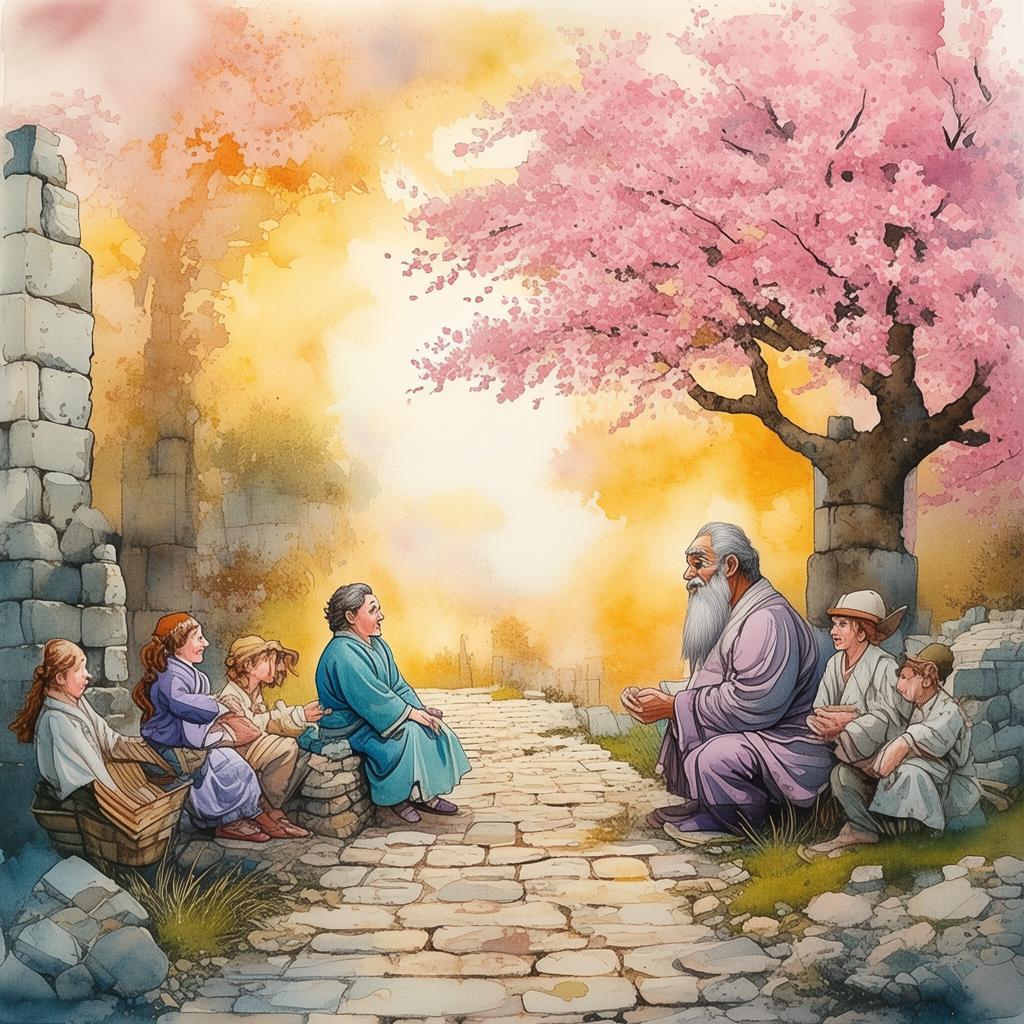
One day, Ming heard whispers of a competition that would send the winner to the capital to perform in front of the emperor. He saw this as his chance to be chosen for the Celestial Choir. He worked tirelessly, practicing his scales and harmonies, often losing himself in the dreams of performing in the grand hall.
As the competition approached, Ming's resolve was tested. He faced a moral dilemma: to win the competition, he would have to sing a song that was not his own, a piece that had been crafted by the most famous composer in the land. The song was beautiful, but it was not Ming's voice that had crafted it. To sing it would be to betray his own art and the purity of his talent.
The night before the competition, Ming sought counsel from his grandmother. She listened to his troubles and then shared a story from her youth. She had once heard a true harmony, a song that had come from the Celestial Choir itself. It was a song that sang of the beauty of the world and the importance of harmony, not just in music but in life as well.
Ming was moved by her words and decided to follow his heart. The next day, he took the stage, and instead of the planned composition, he sang a song he had written himself. The audience was shocked, but Ming's voice was so powerful and pure that it captivated everyone present. The judges, impressed by his courage and talent, awarded him the first prize and the chance to perform in the capital.
In the capital, Ming faced the grand hall and the emperor. He knew that this was his chance to be part of the Celestial Choir, but he also knew that he could not betray his principles. He took the stage and sang the song his grandmother had shared with him, the song of the Celestial Choir. The hall fell silent, and when Ming finished, the audience erupted into applause.
The emperor, moved by Ming's purity and courage, asked him to join the Celestial Choir. Ming smiled, but he declined. "I have found my harmony," he said. "It is not in the grand halls or the emperor's court, but in the hearts of the people and in the purity of my own voice."
And so, Ming returned to his village, his heart full and his spirit unbroken. He continued to perform, not in grand halls, but in the fields and markets, sharing his music with everyone. And every time he sang, he remembered the Celestial Choir, not as a distant dream, but as the moral compass that had guided him to his true harmony.
✨ Original Statement ✨
All articles published on this website (including but not limited to text, images, videos, and other content) are original or authorized for reposting and are protected by relevant laws. Without the explicit written permission of this website, no individual or organization may copy, modify, repost, or use the content for commercial purposes.
If you need to quote or cooperate, please contact this site for authorization. We reserve the right to pursue legal responsibility for any unauthorized use.
Hereby declared.
